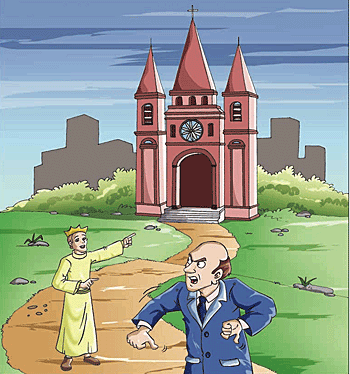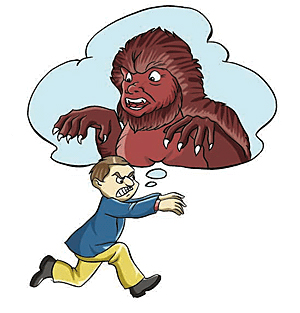anthrop-, anthropo-, -anthrope, -anthropic, -anthropical, -anthropically, -anthropism, -anthropist, -anthropoid, -anthropus, -anthropy
(Greek: man, mankind; human beings; including, males (man, men; boy, boys) and females (woman, women; girl, girls); all members of the human race; people, humanity)
theanthropic (adjective), more theanthropic, most theanthropic
Pertaining, relating to, or having the nature of both God and man that are at once divine and human.
A person who believes that the divine can manifest itself in mortal form or that mortals can be divine: A theanthropist believes in the union of the divine and human natures; especially, the manifestation of God as man in Jesus Christ.
The practice of eating a godlike person or something representing a god.
1. A godlike person: Jesus Christ was the unification of the divine and human natures.
2. A human god; a human incarnating, or believed to incarnate, God, or a god.
2. A human god; a human incarnating, or believed to incarnate, God, or a god.
A system of belief concerning a God-man: Theanthroposophy is a doctrine that relates to Christ as being both God and human.
1. The assigning of human characteristics to a god or gods.
2. The Christian doctrine that the human and the divine are united in Jesus Christ.
3. The doctrine of the union of the divine and human natures, or of the manifestation of God as man, in Christ.
2. The Christian doctrine that the human and the divine are united in Jesus Christ.
3. The doctrine of the union of the divine and human natures, or of the manifestation of God as man, in Christ.
Someone who hates both God and mankind.


A priest is trying to encourage a man to attend church, but the man is showing his hatred for both religion and apparently for people who are participants in church functions.
A person who is said to love both God and human beings: "Theophilanthropists were members of a deistical society established in Paris during the French revolution, or Directory, that aimed to institute in place of Christianity, which had been officially abolished, a new religion, affirming belief in the existence of God, in the immortality of the soul, and in virtue."
A belief that expresses a love for God and mankind.
1. Combining the form of a beast with that of a man or pertaining to deities represented in the combined forms of a man and an animal; such as, dog-headed or eagle-headed divinities.
2. The belief that humans may sometimes assume animal form; such as, the werewolf.

2. The belief that humans may sometimes assume animal form; such as, the werewolf.

therianthropic (adjective), more therianthropic, most therianthropic
1. A reference to being partly bestial and partly human in form; for example, an imaginary being; such as, a centaur that is partly human and partly animal.
2. Pertaining to deities conceived or represented in human and animal forms.
2. Pertaining to deities conceived or represented in human and animal forms.
The transformation into animal form, such as the supernatural transformation of a person into a wolf, as recounted in folk tales.
A branch of anthropology which studies the visual elements of human culture in the form of artwork and utilitarian objects (designed primarily for practical use rather than beauty); involving issues; such as, why a culture chooses one form over another or one material type over another type.
zoanthropic (adjective) (not comparable)
Descriptive of a mental disorder in which people believe themselves to be animals: Timothy had the vision that he was a beast, or other creature, and after his doctor examined him, he said that he was suffering from a zoanthropic deception.
A zoanthropic psychotic belief is a kind of monomania, or delusion, in which patients are convinced that they have been transformed into one of the lower animals.
A mental derangement, or disorder, in which a person believes himself or herself to be an animal and acts accordingly: It is rarely the case, but sometimes it can be very serious when a person truly believes that he or she is becoming an animal and then loses contact with reality.




